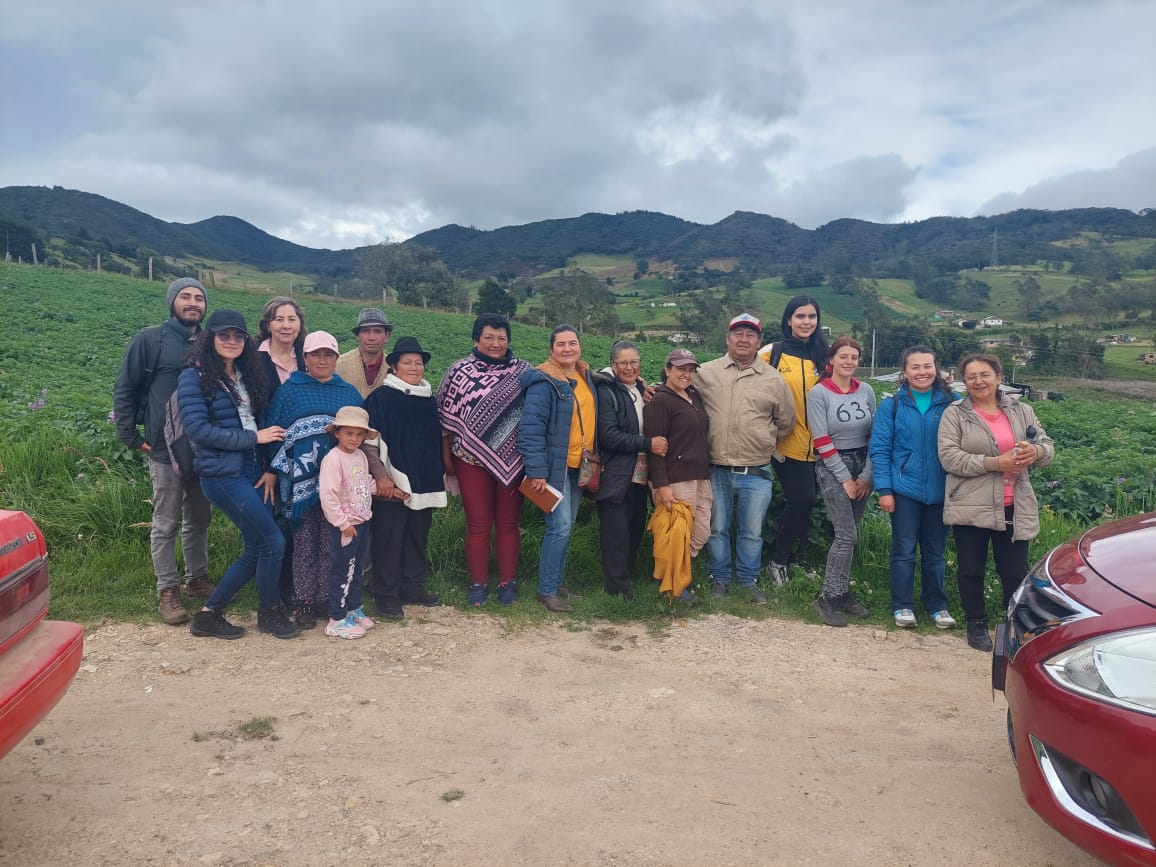Agroecological production of potato as a strategy for adaptation to climate change
Municipality of Toca (Colombia)
In Colombia, the researchers and peasant communities worked together to implement agroecological practices and principles for most of the traditional crops and cultures (papa) in order to achieve higher resilience and adaptation to climate change.
Lead organization
The Pedagogical and Technological University of Colombia (Universidad Pedagógica y Tecnológica de Colombia (UPTC) is a national public university in Colombia.
Two research groups were particularly involved in this project:
- Research Group on Environmental Sustainability, Biodiversity and Agroecology (Grupo de investigación en Sostenibilidad Ambiental, Biodiversidad y Agroecología (GISABA));
- Grupo Carbones y Carboqumica (GIC).
Countries
San Francisco and Tuaneca in the Municipality of Toca, in the Boyacá region of Colombia.
Timeline
The project started in May 2022 and will be completed in December 2024.
Funding
The total budget is COP 35 million (Colombian Pesos), equivalent to EUR 8435. The project is funded by the own resources of the Vice-Rector’s Office of Research of the Pedagogical and Technological University of Colombia.
Mission
To implement agroecological practices and principles for most of the traditional crops and cultures (papa), in collaboration with the peasants’ community, in order to achieve higher resilience and adaptation to climate change.
Context
Many chemical synthetic products are used by farmers in this region to control crop diseases and pests.
Main beneficiaries
Peasants of the villages, students in training and teaching researchers.
Strategy
Objectives
The general objective of the project is:
To design a proposal that will enable the conversion towards the agroecological production of potatoes (papa) for the Association of Agricultural Producers of Toca (APROAGRO) in San Francisco and Tuaneca, as a strategy for the adaptation to climate change.
The strategic objectives in agroecology are:
- To characterize the agricultural production system in the study area, while acknowledging the social, environmental and economic reality of the families.
- To propose a redesign of the potato production system towards agroecology, taking into account the climatic variations as well as the socio-economic and environmental conditions of the territory.
- To carry out participatory environmental training including the agroecology component as a strategy for the sustainable production of potatoes.
Types of farms:
The types of farms for this project are small plots that produce potatoes, peas, corn, vegetables which are also into sheep and cattle breeding.
Activities
The activities of the project included:
- Design and setting up of a demonstration garden;
- Preparation of bio inputs by farmers themselves used for phytosanitary control; and
- Implementation of agroecological orchards and native species on each of the farmer’s parcels to maintain ancestral and locally-adapted varieties.
Effects and Impacts
Lessons learned/results
- All the farmers implemented agroecological orchards on their farms, which highlights their commitment towards producing agroecologically.
- The decrease of the negative impact on the ecosystem was notable thanks to the establishment of native species of the area, which also increased biodiversity.
- The exchange of knowledge between farmers and researchers through trainings increased farmers’ commitment to the conversion to agroecology.
Limitations:
- Due to a high use of chemical synthesis products by farmers to control diseases and pests in the region, the expansion of the agricultural frontier has caused an imbalance in the ecosystem which makes the agroecological reconversion processes slower.
- Another difficulty was the shortage of labor force in the region.
Relevant links
Research articles available here: https://scholar.google.com/citations?user=54u17Y8AAAAJ&hl=es


